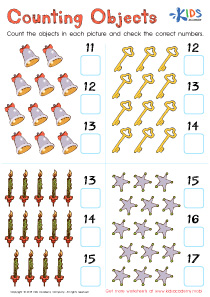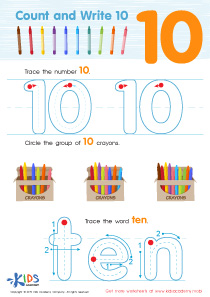Developing math skills Normal Comparing Numbers Worksheets for Ages 6-8
3 filtered results
-
From - To
Welcome to our "Developing Math Skills: Normal Comparing Numbers Worksheets" for ages 6-8! These engaging worksheets are designed to enhance your child's number comparison abilities. Through fun and interactive activities, children will learn to recognize smaller and larger numbers, as well as develop critical thinking skills. Each worksheet facilitates understanding through easy-to-follow instructions and colorful illustrations that capture young learners' attention. Ideal for both classroom and home use, these worksheets provide a solid foundation in math concepts, fostering confidence and independence. Help your child excel in math with our thoughtfully crafted resources that make learning enjoyable and effective!
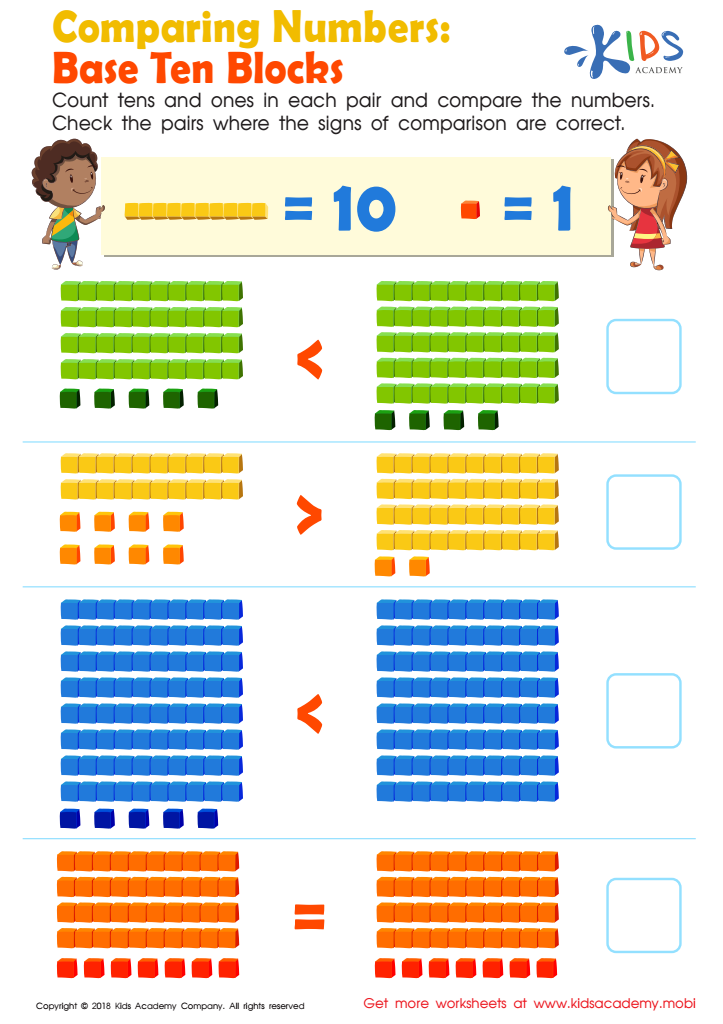

Comparing Numbers: Base Ten Blocks Worksheet
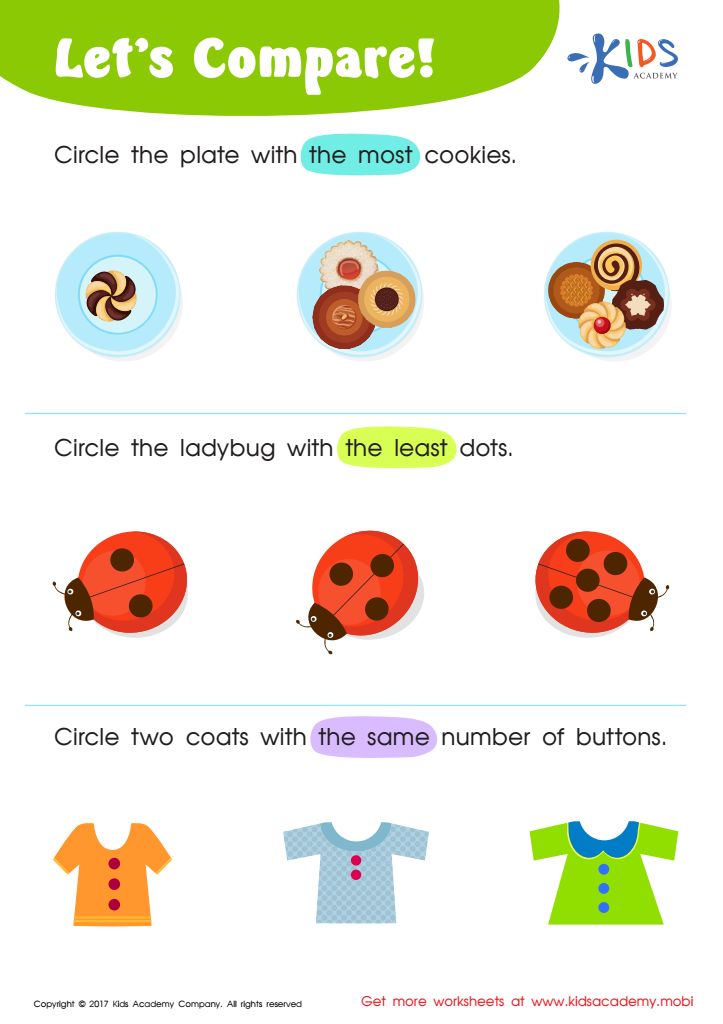

Matching: Classifying Toys by Size Worksheet
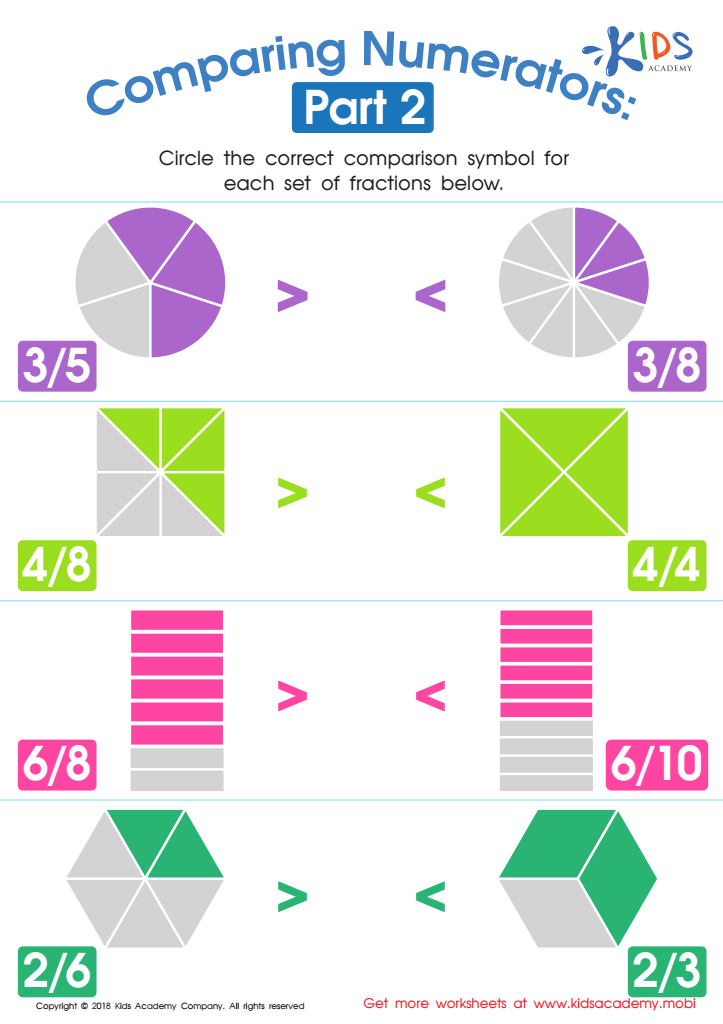

Comparing Numerators Part 2 Worksheet
Developing mathematical skills, particularly in comparing numbers, is crucial for children aged 6-8. During this developmental stage, children begin to build foundational concepts that will support their understanding of mathematics in the future. Learning to compare numbers—understanding which numbers are larger, smaller, or equal—enhances critical thinking and problem-solving abilities. It also lays the groundwork for more complex mathematical operations, such as addition and subtraction.
When parents and teachers prioritize these skills, they empower children with tools to navigate everyday situations, such as measuring ingredients while cooking, making decisions based on store prices, or interpreting various data in charts and graphs. Moreover, strong early math skills are linked to improved academic achievement across subjects, not just in math. Children who are proficient in comparing numbers tend to feel more confident in their abilities, fostering a positive attitude towards learning.
Furthermore, consistent practice with these skills can help children develop perseverance and resilience, vital traits for overcoming future challenges. By nurturing basic math skills now, caregivers can set the stage for a lifelong appreciation of mathematics and its relevance in daily life and the broader world. In short, engaging with number comparison is both an educational imperative and a gift for children's future success.

 Assign to My Students
Assign to My Students










